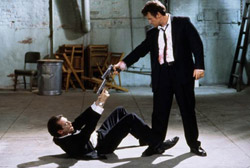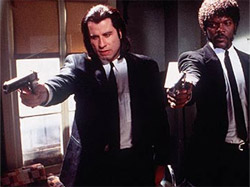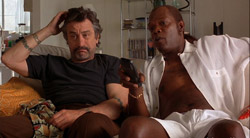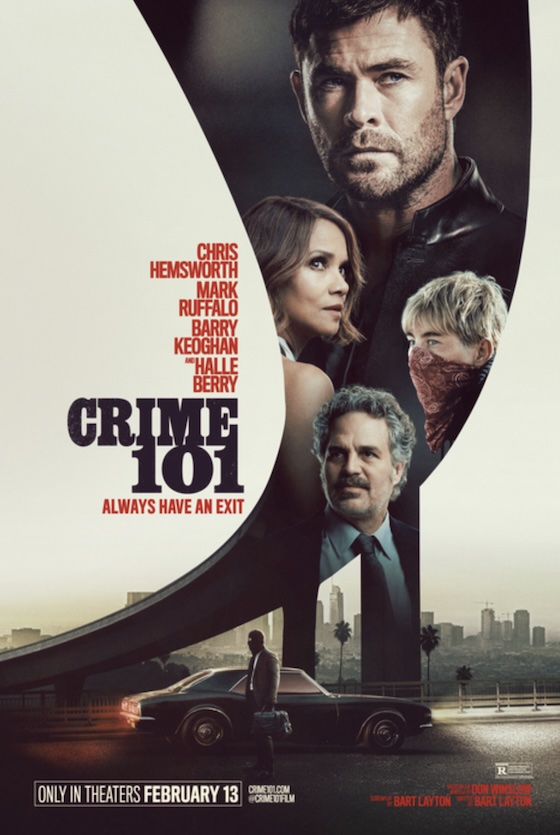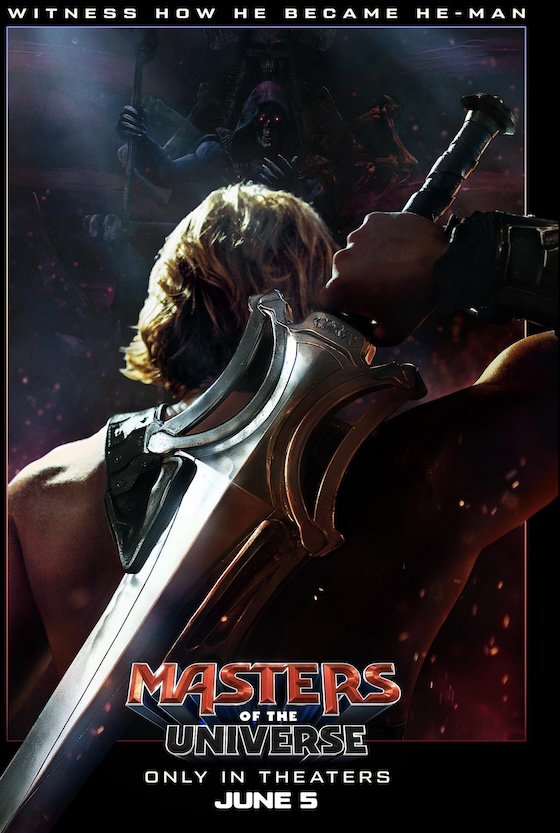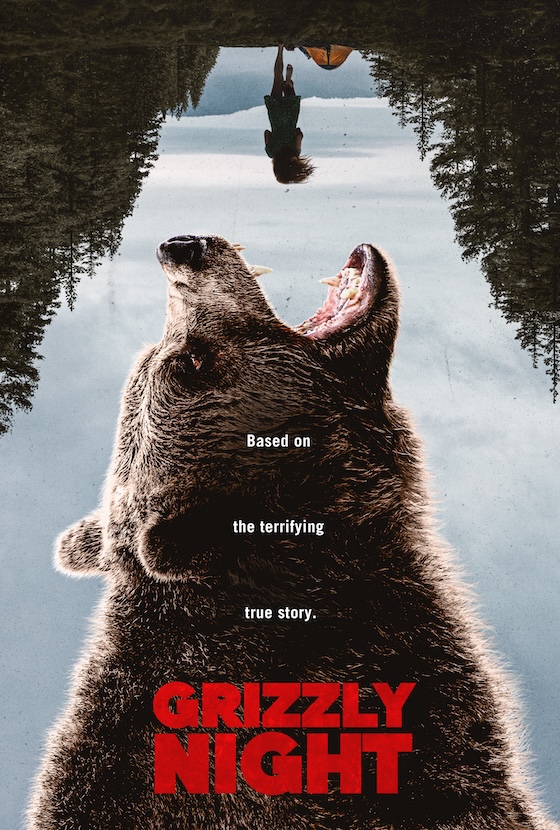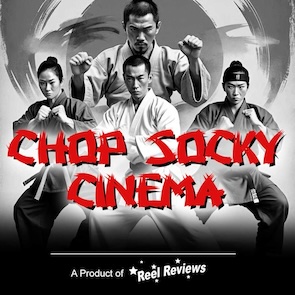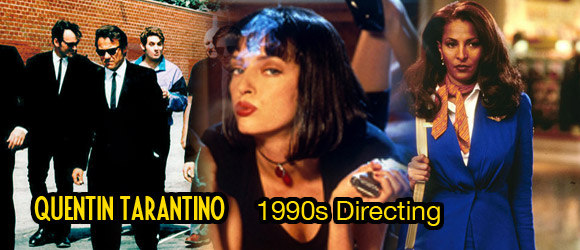
If one needed to sum up who Quentin Tarantino was in one word, I think the best one would be “pioneer.” He ushered in a new wave of film that is replicated over and over again, ad nauseum, until the entire pool is over saturated with Tarantino wannabees. He’s been nominated for his writing and his directing, and landed some of the once thought pastured actors Oscar nominations.
As we close out 2012, his most recent feature drops on Christmas Day - Django Unchained - we here at Reel Reviews decided it was best to reflect on the career of Quentin Tarantino. Tarantino represents a fantasy that every young writer would love to live out. He dropped out of high school to focus on his writing and sold multiple scripts and now he’s considered one of the most iconic directors of his generation, despite having directed less than 10 full features. When compared to Spielberg and Scorsese, he’s the youngling, but his collection of films have had just as much of an impact on the industry as both of those legendary directors. It’s a bold statement, but considering his catalog, his influence, I think it’s appropriate.
We’re breaking his career down into three sections: 1.) Writing (films he’s only written) 2.) 90s directing and 3.) 2000’s directing. All leading up to the debut of Django Unchained on December 25th. So if you’ve never heard of Quentin Tarantino, get ready to be... INFORMED!
Last time we discussed the writing career of Quentin Tarantino. We explored his writing only projects, films he only wrote the script for. During the early 90s, Tarantino made a name for himself very quickly by the sale of those scripts, as well, and more importantly, for two American film classics - Reservoir Dogs and Pulp Fiction.
Reservoir Dogs
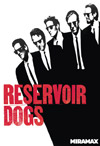
![]()
The first, Dogs, came out in 1992. It was a low-budget independent film that had an excellent cast of underrated and often times forgotten actors - Harvey Keitel leading the pack, but followed closely by Tim Roth, Michael Madsen, the late Chris Penn, and of course Steve Buscemi. Tarantino directs the graphic Dogs but excludes a major, pivotal aspect of the narrative. A jewelery heist goes terribly wrong and those involved reconvene at an abandoned garage to discuss (violently) the possibility of an undercover cop being in their company. Tarantino tells this story without ever showing the actual heist. All of the events are mostly told through dialogue.
Tarantino names his characters after colors, to keep anonymity amongst them. Keitel plays Mr. White, Roth as Mr. Orange, Madsen as Mr. Blonde, Tarantino as Mr. Brown, and Buscemi as Mr. Pink. Screenwriter and occasional actor Eddie Bunker filled in the final role as Mr. Blue, but the story barely touches on this character, which brings up the question of his purpose, if not only for dying. These six men are brought together by Lawrence Tierney’s Joe, and his sone Fast Eddie played by Penn. The players are chosen, the setting selected, to pull it off they need to work together.
Obviously that doesn’t happen. The non-linear narrative of Dogs presents gaps that the audience needs to use assumption to fill in. Each character is independent of the group narratively. Mr. White represents the main character (if there really is one), a man who doesn’t want to be doing this, but involves himself with it out of desperation and respect. Keitel is a kindred spirit at first, but his animosity shows through quickly. Dogs opened to the public with a lot of disgust but admiration. A good portion of that admiration comes from the limited budget, but the compelling story and great cast.
|
|
| Scene from Reservoir Dogs |
The disgust came from Tarantino’s breakthrough scene. It will forever be remembered as what made Tarantino a director to be remembered. Madsen, as Vic Vega, tortures Marvin Nash, a cop he’s abducted from the heist. Madsen’s cool, throughout the whole movie. But as Pink and White step out for a moment, and with Orange laying in a pool of his own blood after being shot escaping the heist, Blonde decides to get some answers from Nash. Tying him to a chair, and beating on him, he decides the best way to torture a man is by cutting his ear off. The scene was deliberately disturbing, and caused many audiences to exit the theater upon first viewing. The realism displayed in this scene was shocking even to horror icon Wes Craven. Blonde douses his piggy with gasoline and dances around to “Stuck in the Middle With You” by Stealer’s Wheel. Depicting such a horrific torture was a cruel but effective way for Tarantino to engage the audience.
Dogs came at a time when film was fairly balanced. There weren’t a lot of independent films being produced, but there were some moderate successes. The early 90s were oversaturated with buddy cop movies and sequels (still true today a little bit). Dogs ushered in the era of the indies. There were independent films and filmmakers before, but the blowback from Dogs sent studios into a gold mine. Nurturing these young filmmakers by giving them a few million dollars to make a 99 minute heist film that made 8 times it’s budget was a brilliant idea. It was followed by copycats and starving filmmakers who needed a boost. Dogs resurrected Harvey Keitel and Tim Roth’s careers, and made a name out of Buscemi and Madsen.
The cast is incredible, no one drops the ball. Spending most of the movie on the floor, Roth’s cries of pain are excruciating and one of the most gut wrenching whimpers I’ve ever heard. Buscemi shines the brightest in my opinion as Mr. Pink. Buscemi was a small time actor essentially before Dogs, but afterwards he became the go-to Supporting Actor man, and found relevant roles in many Coen Brother’s films. His squirmy scum-of-the-Earth personality added comic relief at times, but also kept things interesting with his point of view.
Dogs has obvious connections to other Tarantino films as well. Vic Vega is presumably the brother of Vincent Vega, portrayed by John Travolta in Pulp Fiction. Mr. White mentions an “Alabama” in reference to Alabama from True Romance. Much like how Kevin Smith created a whole universe for his characters, Tarantino did it with subtlety and Easter egg knowledge. If you miss it, you wouldn’t be the first person.
Pulp Fiction
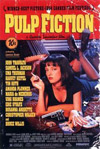
![]()
Dogs was a success on a small scale, but it was a precursor to Tarantino’s magnum opus - Pulp Fiction. The consensus from critics is that it’s a masterpiece. Audiences seem divided on the three part story. Dialogue heavy, an ensemble cast, sprinkled with random and intense violence Pulp Fiction brought the Tarantino name to the spotlight. It brought John Travolta back from the dead, and made a Hollywood star out of Samuel L. Jackson. With an incredibly addictive soundtrack, and oddball but memorable instances, Pulp Fiction surprised audiences by providing a complex narrative that to some appeared to be directionless.
Filmed in three separate parts, the story focuses on a group of people who at some point all interact in some form. The central characters are Vincent Vega (Travolta), Jules Winnfield (Jackson), Mia Wallace (Uma Thurman), and Butch Coolidge (Bruce Willis). Three separate narratives (seven including preludes) involving these characters - “Vincent Vega and Marsellus Wallace’s Wife,” “The Gold Watch,” and “The Bonnie Situation.” The preludes help divide up the film to make it segue from scene to scene more smoothly. According to the man himself, Tarantino wanted to create a trilogy in a manner that was all connected. Instead of doing a Lord of the Rings like trilogy, full of false endings and grand special effects, he opted for a more subtle approach by connecting each character through other pivotal ones. This particular character - Marsellus Wallace - is portrayed acutely by Ving Rhames, in a role that really brought him to the forefront when it came to brute badasses.
I could literally spend all day talking about Pulp Fiction. It’s Tarantino’s first masterpiece and one of the greatest films, not just of the 90s, but of all time because of how smoothly Tarantino writes and directs the film. Every piece of dialogue seems specifically articulated by him, and no scene is deemed unnecessary. It was with Pulp Fiction that Tarantino was able to perfectly hone his skills and make a name for himself.
|
|
| John Travolta and Samuel L. Jackson in Pulp Fiction |
The characters in the film are unique because there is no inherently good person in the film, but Tarantino takes extra special care of each one and devotes time to help you understand them as a human, not just as a gun for hire, a snobbish wife, or an over the top boxer. Each one is devoted ample time for exploration and dissection, something a lot of filmmakers could learn from. On the one hand you have Vincent Vega, a ruthless hitman at the start of the film, but once he takes Mia Wallace out on a date you find this man has a legitimate conscious and is empathetic. Fast forward to “The Bonnie SItuation” and you find Vega a pig in some respects, disrespectful even. It’s a conflicting portrayal of each character. At first you think Butch Coolidge may be the only true hero in the film, but his actions at the start of “The Gold Watch” lead you to believe he’s just like everyone else.
It’s a healthy balance of good vs. evil, but with a major grey area in between, thus showing that no one is definitely good or bad, and that most are grey. Whether this is true or not is left to be seen, but here Tarantino portrays it to be. I’ve not seen many films that can consistently keep my attention at the length this runs at. Of the three stories I find “The Gold Watch” to be my favorite. Bruce Willis’ timing and cool demeanor is reassuring, and the climax of the segment is unforgettable due to the graphic nature. Butch is the closest thing to a hero in the film, and I think this is a shade because he really isn’t. But Tarantino cast a man who has been closely associated with the “anti-hero” for years in Bruce Willis, that it seems natural to warm up to him as opposed to Travolta’s Vega who begins the film by killing a bunch of guys in a room.
In my opinion Pulp Fiction was robbed of all of the Oscars it was nominated for back in 1994. It’s a film masterpiece and it helped usher in the independent film era that has now boasted some of the greatest displays of acting and writing in film today. It was a shame that such a wonderful film, such a challenging film, was followed up by such a lackluster film in Jackie Brown.
Jackie Brown
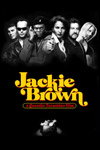
![]()
Jackie Brown is the stepchild of Tarantino’s filmography. There’s no real rhyme or reason for why it exists, and unlike some of his other missteps (like Grindhouse) you can’t chalk it up to studios or collaborations. This is entirely on Tarantino. It’s not that Brown is a terrible film, it’s not, it’s actually very good. But when compared to the previous films, and what he would go on to create after Brown, the film feels less than stellar.
He enlists a wealth of talent. Some of them in top form, some of them in rather poor form. Digging up Pam Grier from whatever 70s vault he found her in, he casts her in the lead role as Jackie Brown - a flight attendant who has spent several years enveloped in a close relationship with a charismatic illegal arms dealer - Ordell (played by Samuel L. Jackson who by this point is already a Tarantino mainstay). She’s supported by the very kind and Oscar nominated Robert Forster who plays Max Cherry a bail bondsman who haplessly falls in love with Brown.
Then there’s a slew of disposable characters - Robert De Niro as Louis an ex-con who happens to be staying with Ordell and his sort of girlfriend Melanie (Bridget Fonda). Louis and Melanie apparently fall “in love,” and decide to double cross Ordell when the plot is revealed. Jackie is caught up in this ordeal because she smuggles small amounts of drugs for Ordell from Mexico during flights and gets busted. Ordell has already disposed of one supposed rat - Beaumont Livingston (Chris Tucker). Anyone who doesn’t like Tucker (this includes myself) would get satisfaction in seeing him slain by Ordell early on - especially anyone (myself included) who felt The Fifth Element would have been watchable had it not been for Tucker’s presence.
Michael Keaton and Michael Bowen play ATF agents - scummy wants I might add - who want nothing more than to either score big off of this blackmail scheme they are hatching, or see Ordell in prison, Jackie too. All in all the film is mostly about blackmail and deceit. For the first time there’s a legitimate hero for a Tarantino film - Max Cherry. Good natured, helpful, honest Max Cherry. Forster shines here the most, more so than Grier. Forster as a veteran actor has been around the world, and still managed to net a Support Oscar nomination for his thoughtful role years after everyone thought he’d been put out to pasture.
|
|
| Robert DeNiro and Samuel L. Jackson in Jackie Brown |
And that’s really what Jackie Brown is best at - revitalizing people you forgot about. With the exception of Jackson and De Niro, most of the actors present in Brown were considered at the end of their rope. Keaton was Batman for two films... and then he did Multiplicity. Fonda was known for Single White Female and possibly City Hall, but no one gives a damn about Point of No Return. Forseter’s two highlights for the 20 years before Brown were Alligator and Delta Force. Tarantino has a knack for revitalizing careers. He did it with Travolta in Pulp Fiction, Roth and Keitel in Reservoir Dogs, Kurt Russell in Death Proof, and Uma Thurman in Kill Bill. It may be short lived for some, but it gives a throwback to older times that Tarantino likes to pay homage to. Sometimes its effective, and other times, it’s sorta plain. Brown is the latter.
I feel that the greatest pitfall to Jackie Brown is the cast, which is why I’ve focused on outlining all of the players. With Tarantino as a hot name, it probably seemed appropriate to have every try to jump on board. This worked to an extent, but for De Niro, he really has no place in a Tarantino film. He’s out of place in this realm, a good actor, a legendary actor, but Tarantino’s script is too progressive for De Niro. Keaton as well seems like a dead fish in this role, but he’s never been a great actor just an okay one. Fonda’s also out of her element here, she’s too cutesy yet scaly at times, and not very interesting. Jackson and Forster do great, and Grier is born for the role of Jackie Brown. It just seems the rest of the cast was eager for work, and a concept in Tarantino’s mind to bring in this actors and actresses that nobody cared about probably seemed like a fresh novelty. Unfortunately, Jackie Brown is mostly dull compared to his other work, a far lower quality product due to such a terribly bloated cast.
It would be the last real flaw though of Tarantino’s career. From this point on, his cult status as a director would reach a fever pitch. Jackie Brown was released in 1997, and no one would hear from Tarantino again until after the new millenium. During this time his long gestating project Inglorious Basterds was supposed to debut, but he shelved it in favor of Kill Bill.
To be continued ...
Read Part One of Three - Quentin Tarantino - Screenwriting Pioneer
Read Part Three of Three - Quentin Tarantino - 2000s Directing

